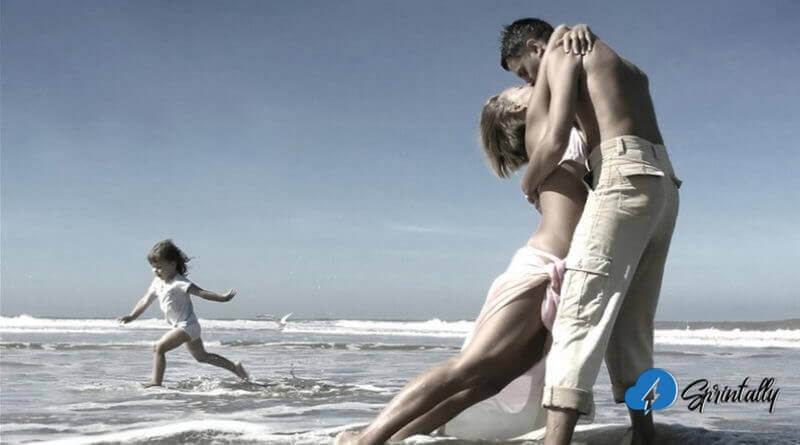Flow state: what is, how to enter it

Flow state: We ourselves generate optimal experience. The best moments of our life come to us, not in a state of relaxation or passive contemplation. They usually happen when the body and mind are strained to the limit in an effort to achieve something difficult and valuable.
If you ski, you must have been challenged by some slope. And even if you were already descending along with it, you still have not been able to dominate it, you felt that it was he who always emerged the winner in your confrontation.
But now you begin to be amazed at another attempt, making a rapid movement down without any special efforts. Your actions seem completely automatic as if everything happens by itself.
You do not notice the passage of time, and each subtle sound becomes more intense - from a crisp touch of the skis under your feet to your rhythmic breathing.
You flow down the hill, and later, perhaps describe that you have become one with the mountain. All these years of training and struggle, lessons in skiing and falling in the snow are completely justified. You have experienced a state of flow.
If you are not involved in sports, you could gain similar experience in other areas, for example, working on a complex project or even while reading or talking with friends.
In such situations, your mind is completely absorbed in the activity, so much so that you forget yourself and begin to act without significant effort, with an increased sense of “here and now”, that is, remaining in the moment.
You may be surprised to learn that in recent years this condition has become the subject of many studies of positive psychology.
American Professor of Hungarian origin with a world name Mihaly Csikszentmihalyi came to the conclusion that people get satisfaction out of being in a state of consciousness, which he called “Flow”
In this state, they are completely absorbed in activities that allow them to show their creative abilities.
During this “optimal experience”, they feel confident, fully concentrated, not making any efforts to achieve the goal, and are at the peak of their abilities.
Chiksent mihayli believes that happiness does not occur in our lives just like that. Everyone should independently create and cultivate their own happiness, which is achieved in the process of a person performing tasks corresponding to the level of his abilities (they are not too complex or too simple for a person's capabilities).
Mihai Chiksent Mihaly is one of the pioneers of the scientific study of happiness.
He was born in Hungary in 1934, and, like many of his contemporaries, became an unwitting witness to the horrors of World War II, which could not but affect his life, and then his work.
The future psychologist noticed that many terrible events broke many people. Others did not lose heart and, if it were not for the realization of what was happening around, it would seem that nothing had changed.
They were cheerful, made plans for the future and behaved very dignified. Moreover, before the onset of the war, these people did not stand out from the rest.
Carrying out research on artists and other creative personalities, Chiksentmihayli concluded that the act of creating a new canvas seemed sometimes more important than the finished work itself.
He was impressed by the state of consciousness in which a person is completely immersed in activity with the maximum concentration of attention and the manifestation of creativity.
Chiksentmihayli made an attempt to measure the level of happiness.
His experiment was as follows: a group of teenagers was given pagers that made a sound signal several times during the day. They were asked at that moment to write down what they were doing, what they were thinking and what they were feeling.
Most of the notes characterized the dissatisfaction of adolescents, but when their energy was directed towards a complex task, they were usually more optimistic.
This and other studies have helped lay the foundation of the theory of “Flow”.
Happiness as a state of flow

The main thesis of M. Chiksentmihaii’s most popular book, entitled “Flow. Psychology of optimal experience ”, characterizes happiness not as a fixed state, because it is able to develop as the flow in our life reaches.
The key aspect for the flow is control: in the state of flow, we exercise control over our own consciousness and do not allow external factors to influence us.
It is not surprising that Chiksentmihayi comes to the conclusion: happiness comes from within. We must not be dependent on external factors, such as things and pleasures, in order to experience happiness.
The key to happiness is how we put our psychic energy into it. When we focus our attention on a consciously chosen goal, our psychic energy literally "flows" in the direction of this goal, which leads to the ordering and harmony of our consciousness.
Flow is defined as a state in which people are so much involved in activities that nothing else matters. The process is so exciting that people will continue it for their own sake.
Flow status conditions
- Clear goals at every stage of the process.
- The level of available skills corresponds to the complexity of the task.
- Absolute concentration on the process.
- Immediate feedback on your actions (consciousness determines successful and unsuccessful actions, and your behavior automatically changes as necessary).
- Action and consciousness merge into a single whole.
- Self-awareness (the sense of self) disappears.
- There is a distortion of the sense of time.
- Distractions are excluded from consciousness.
- A sense of complete control over the process.
- The activity becomes an end in itself, therefore it is carried out without effort and eliminates the fear of failure.
As the above conditions show, the state of the flow is not characterized mainly by subjective sensations, even positive ones, understanding and internal attitude to events. Rather, the essence of the flow is the elimination of the interference (suppression) of the thinking mind.
When Michael Jordan was near the three-pointer line, he did not think, “Damn, how can I throw a three-pointer? What will the audience think if I miss? Interestingly, did I turn off the iron at home? ”
If this happened, he would have interrupted his flow state and, probably, threw the ball into the stands.
Absorption in the process indicates the absence of your “I” and the merging of your awareness with the activity in which you participate.
As psychologist Martin Seligman says: “Consciousness and emotions exist to correct your actions. When you do something perfectly, you don’t need them. ”
Flow research does not focus solely on sports, work or creative activities. The state of the flow is also applicable to situations when difficulties and hardships turn into a challenge, rather than become a disaster.
There are people who have developed the flow so much that they are able to translate every potential threat into a pleasant task and, thereby, maintain inner calmness as an uninterrupted state of mind.
Chiksentmihayli calls such a person an “autotelic personality” who never gets bored, rarely worried, has been involved in some kind of activity for a long time.
Now you might think that such a state is characteristic of only a few great people, such as Socrates, Gandhi or the Dalai Lama, but in reality ...
The Case of Welder Joe
Here is an example of someone who decides to give up a high-paying career promotion because he loves his job as a simple welder.
Over the years, Joe mastered many stages of the plant. He is able to fix any technique, regardless of complexity, and is looking forward to new problems to test his skills.
While other welders see their work as a heavy burden, from which they must be mentally distracted and resting with the help of booze and television, Joe enjoys every moment of the workday and, therefore, does not need to run away from anything.
As a car-like person, Joe is able to create flow experiences even in the most barren environment and live a full life, despite the relatively low salary and social status.
The state of the flow is created by actions with a certain set of properties: they are quite complex, require certain skills, have clear and immediate feedback, and evidence of a positive or negative result.
Flow is a constant balancing process between conditions in which the complexity of the task is too high for a person’s abilities and boredom when the task is too simple.
Thus, the flow is a dynamic rather than a static state, because the state of the flow improves skills and increases the complexity of tasks over time.
Since skills are not static, repeating the same actions makes you bored, and a person’s desire to solve more complex problems becomes a reward for the flow state.
This is why the sport is very well suited for flow experiences. Another popular activity that meets these criteria and explains its mass distribution is video games.
The only problem is that experiencing the flow in the process of implementing these activities can easily become a habit, which ultimately leads to a loss of control over consciousness and further unhappiness.
The state of flow as a control of consciousness

Chiksentmihayli reports the amount of information that the brain can process at the same time, and indicates the constant compromises that we make in choosing what to pay attention to from a huge variety of possibilities.
One of the key aspects of the flow is the blocking of any information that is not related to the type of activity being taken into consciousness.
That is why the passage of time and the existing discomfort go unnoticed, and wandering negative thoughts do not enter the mind and are beyond it. The brain, focusing on one goal, is too busy to track all available factors.
There is a clear connection between flow and the Buddhist concept of awareness, as well as concentration and attention, which play a key role in meditation and yoga.
Csikszentmihalyi argues that Hatha Yoga is one of the best models for describing what happens when psychic energy flows through one channel of consciousness. He's writing:
Flow and yoga have a lot in common. In a sense, yoga can be considered a carefully constructed flowing activity. Both flow and yoga are aimed at gaining a state of joy and complete self-determination based on the concentration, which, in turn, becomes available through the discipline of the body.
Maybe now it will become clear to you why some people prefer to spend many hours on such strange bodily positions: they achieve a deep flow-like state, possessing a strong sense of internal control and harmony.
Using a flow model to describe spiritual practices such as yoga can help explain why people in these practices seem calm and happy.
It should be noted that the flow can be achieved by many other activities that do not require such serious obligations. The flow state can be achieved during skiing, fishing, playing the guitar, cooking, reading, socializing, and even eating.
And although the final state for Yoga is liberation from oneself, loss of one's “I”, the goal of the flow, according to Chiksentmihayi, is the development of his personality, the formation of a stronger “I am”.
The psychologist argues that the development of personality is an opportunity to free a person from the power of nature.
Thus, the state of flow is a way of overcoming the “natural” state of mind, which is chaos or “mental entropy”.
One of the main forces adversely affecting the mind is the so-called mental disorder - information that conflicts with existing intentions and distracts us from fulfilling them. We call such situations different words depending on what we are experiencing: pain, fear, rage, anxiety or jealousy. All of these varieties of disorders make attention switch to unwanted objects, depriving us of the freedom to use it on our own. Mental energy loses mobility and becomes ineffective.
Mental entropy is clearly manifested in those moments when we are left alone with ourselves and are not busy with anything. Different, not the most pleasant thoughts begin to visit the head.
The state of flow and pleasure

Another consequence of the concept of flow is the confirmation of the view of the Greek philosopher Aristotle that happiness cannot be equated with pleasure.
While pleasant experiences are usually a passive state, such as watching TV, enjoying a massage, the flow is an active state that is completely under the control of a person.
The lightness achieved in the flow state is the result of the maximum concentration of attention and focused actions.
In fact, flow experiences often consist of painful bodily sensations, for example, when an athlete goes beyond their usual capabilities to win.
Despite the pain, people often remember these moments as one of the best in their lives.
Flow state: just about the complex

Flow state is an interesting phenomenon, which is certainly worth taking into service in your arsenal of personal development.
Surely you experienced a state of flow when you took part in sports. Even if on the eve your head was filled with unpleasant thoughts, after the start of the competition you forgot about all that was superfluous and completely immersed in the action.
And if it is not difficult to experience optimal experience with active physical exertion, then how to “get” into the state of flow in other situations that do not involve physical activity?
Rather, the flow should be studied not by acquiring new knowledge, but by removing existing filters that block direct access to reality (surrounding reality).
These filters are various patterns and stereotypes of thinking, labels, habitual behavior dictated by culture and society.
In addition, you should not just drop the settings, such as “What will people think”, “But it’s not so,” “What if I fail”.
You need to stay here now. You must directly experience reality, be in life, and not in your thoughts. You should be as conscious and focused as possible.
Let's take an example.
How to meet girls in a state of flow
So, suppose that outside the window in summer and today is Saturday. Finally, you got a day off and you decided to meet a girl on the street. To be more precise, with the girls.
You slept well, waited for the evening, got dressed, but before you leave the house you remember what conditions of the flow state are necessary and you should start with setting clear goals for your actions.
→ Clear goals at every stage of the process
We set strategic goals: to get acquainted with the girls and get them to themselves (to make them feel trust and comfort). These are those exceptional and sufficient goals that must be in your head to enjoy the process, but not to become dependent on the result.
If communication with a girl develops mutually pleasantly, you should transfer the acquaintance to a different plane, namely, conduct a date with the girl or subsequently exchange phone numbers. Everything is simple. Well, to find a girl, you should go outside.
And here it is, the street, the field of your hostilities. The goals are extremely clear and transparent, therefore we shift our focus from them and focus on the process.
→ Full immersion in the action
You should get to some parks, for example, by public transport, so you follow the bus stop.
Along the way, you don’t think about dating, how you will do it, what you will tell the girl. You just walk in measured steps, straightening your back, smiling and enjoying the beautiful summer weather.
You don’t think at all, but instead, contemplate nature, breathe in the warm evening air, look ahead and around, observing the surrounding reality called life.
A cool car drove, but you are not giving this event a value judgment. You simply switch your attention first to the car, and then to another object.
→ Distractions are excluded from consciousness
You arrived at the place. There are trees in front of your eyes, you observe a fountain and a sufficient number of people who are mostly in a relaxed state.
You are approaching the maelstrom of events and becoming part of the evening Saturday, the beginning of which will be laid here.
You walk and try to see a girl that you like. Here she sat on the bench, and she’s not the only one so pretty, great.
But the next goal has already been set, and you exclude all people in this park from your reality, they are not there, only your potential acquaintance exists. You don’t care what people think of you, because there are only trees, a fountain and a girl.
→ Action and consciousness merge into a single whole
The choice of the target takes place automatically, you don’t start an internal dialogue with you: “She, not her”, “Approach or not”, I saw and go. Yes, man, you go to her to make a throw.
→ Self-awareness disappears
You absolutely do not care what a girl thinks about you, how she will react to your approach because you are not. There is only the action by which you are absorbed.
→ The activity becomes an end in itself
And here you are, saying to her “Hey, eh!”, Entered into communication. You do not care about the final goal but enjoy the process. Conducting a dialogue with a beautiful girl is always damn nice, so you already won, you're done.
Even if something didn’t work out, spit it out. In any case, you improve your skills, learn new things and become better. From this, you are only delighted.
→ Immediate feedback on actions taken
Thanks to the unity of action and consciousness, you easily communicate with a girl. Each new phrase becomes a continuation of the previous one, you are like a speech machine that shoots word by word as if without your participation.
But if an unusual situation arises, it does not seem to you like that, because your actions are automatically corrected, and you are constantly “in the subject”.
→ A sense of complete control over the process
You feel like you're a superman or at least a batman. You completely control the process of communication, you are like a conductor, you are a process. You feel sincere joy, and the state of the flow is transmitted to your interlocutor.
This feeling cannot be described in words. Realizing the smile on your face, you feel that you are part of the universe, you are the universe.
→ Tell yourself stop
There may come a moment when you should stop taking pleasure in the process, or rather direct it in a different direction because this can miss the final goal.
Perhaps the girl already wants to hide from all the people around you. Maybe she was eager to take a walk along the promenade or visit a quiet courtyard located on another street, where you can be alone and exchange not only phone numbers.
Yes. It was a good day.





